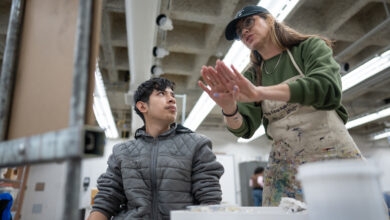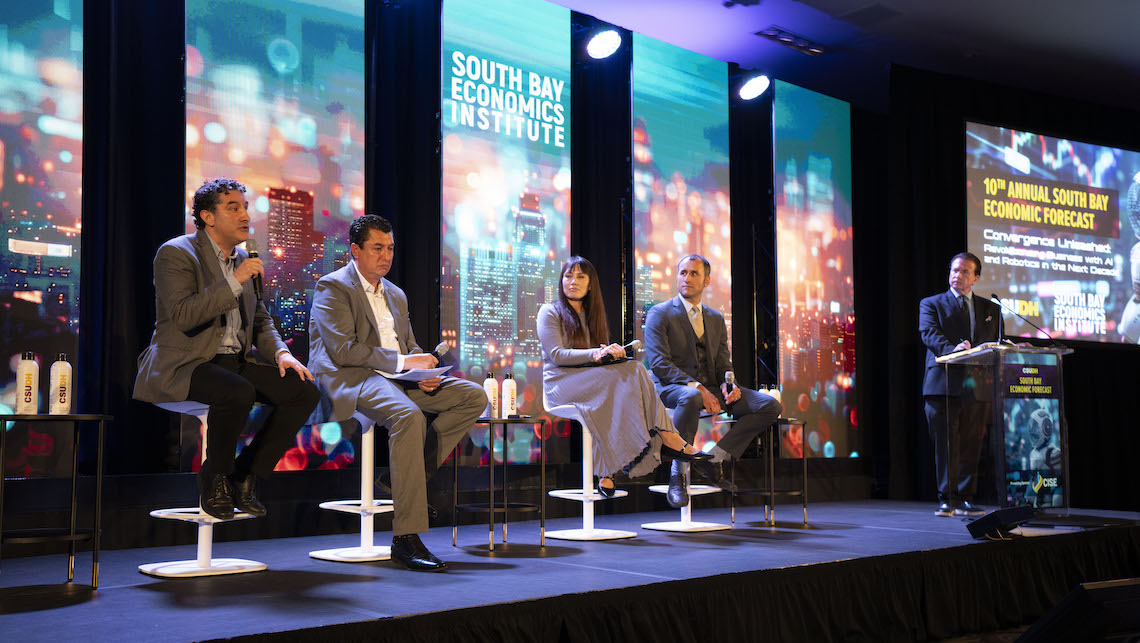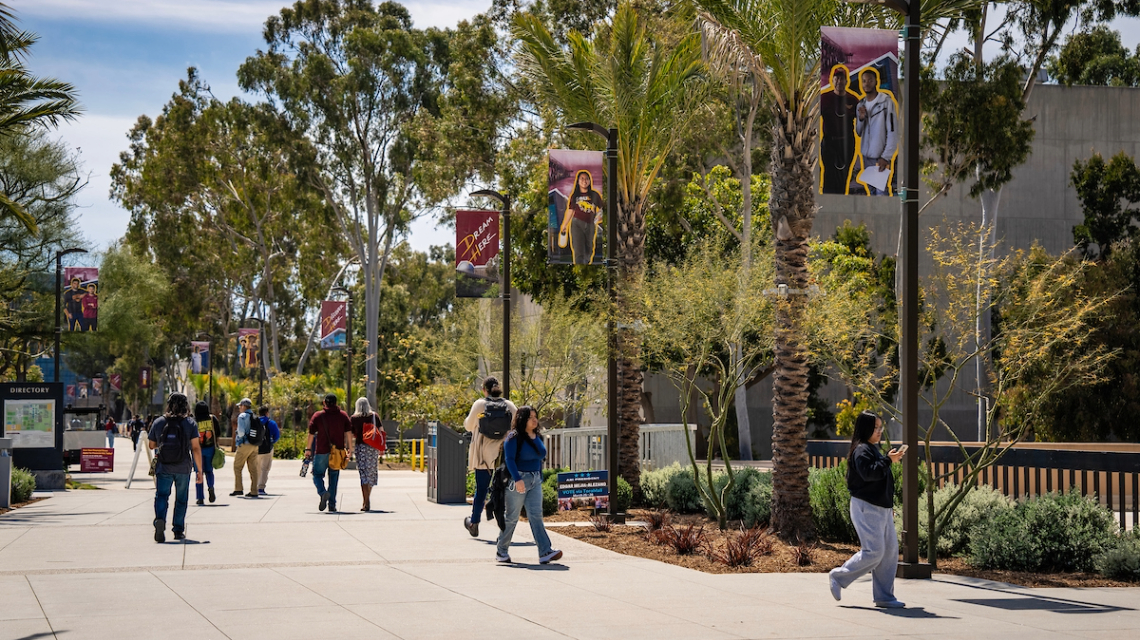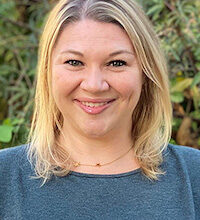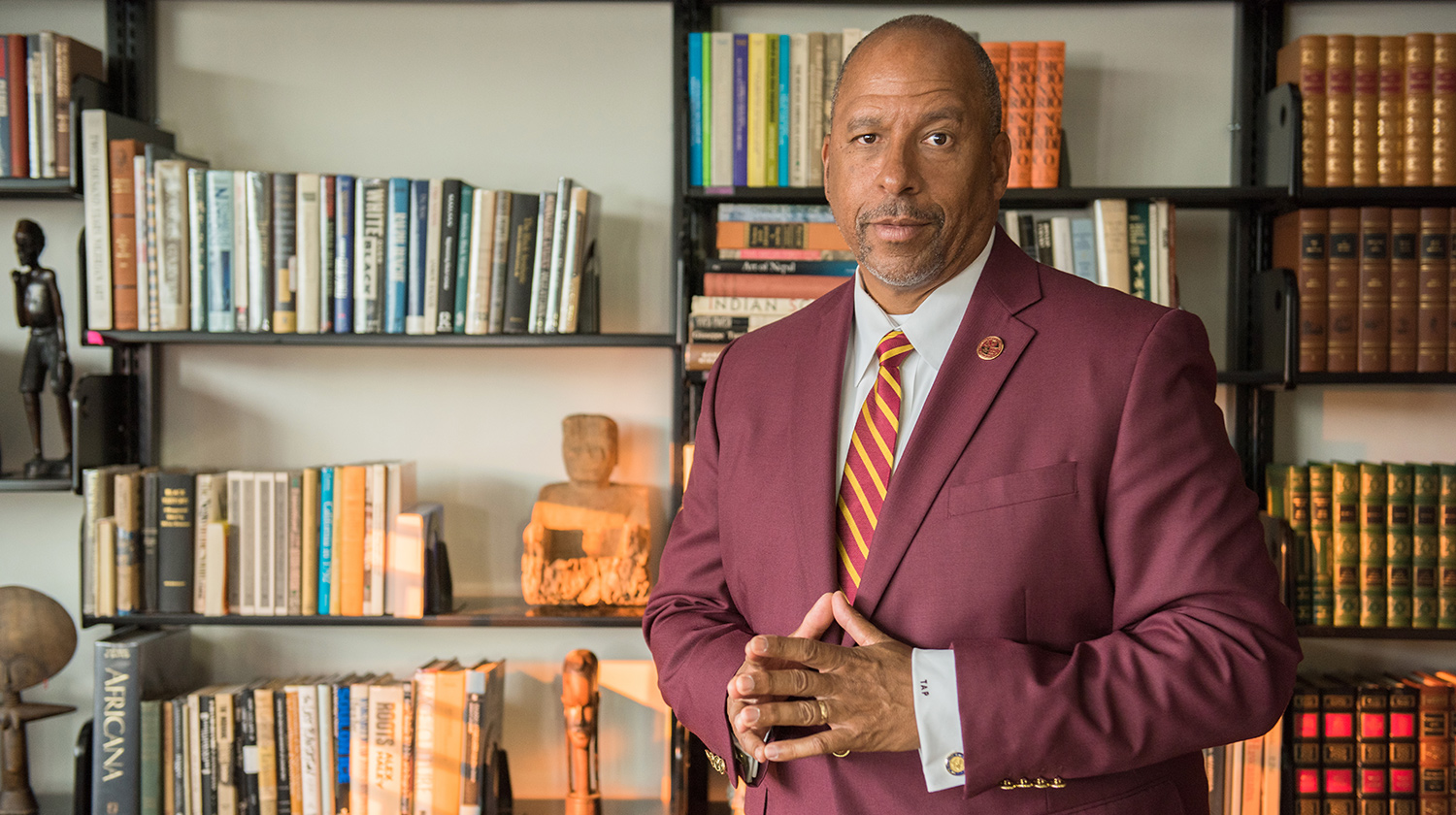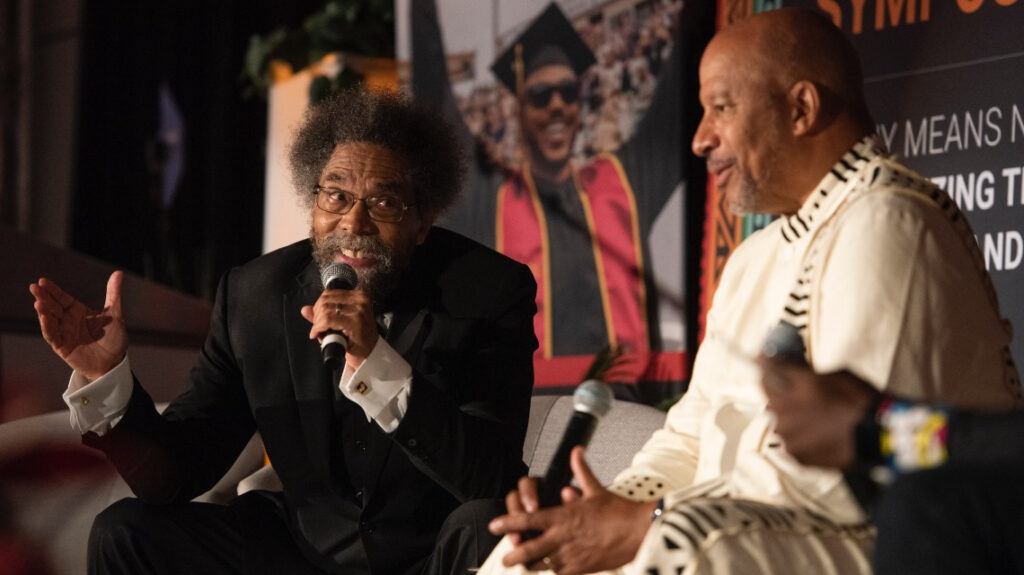
Source: LAist
This story also had a radio segment on KPCC.
On June 19, 1865 – more than two years after President Lincoln signed the Emancipation Proclamation – enslaved Black Americans in Galveston, Texas, finally received word that they were free.
That day, known as Juneteenth, was declared a national holiday last year. To commemorate it, the Cal State University system held a two-day symposium this week, the first of what will now be a biennial event.
Dr. Thomas Parham, president of Cal State Dominguez Hills, said:
“We are not simply acknowledging Juneteenth by putting on a program that lasts for a couple hours, then everybody goes home. We want people to be inspired, and we want people to be impressed. But I want them to take that inspiration and translate it into specific activity, to interrogate the assumptions they bring with them into academic spaces and to see where their biases might be anti-Black.”
Parham volunteered to host the inaugural event at Cal State Dominguez Hills. In his view, it was the ideal place to launch. When the campus first opened in the early ’60s, it was located in Rolling Hills Estates, an affluent city in the Palos Verdes Peninsula. Then, following the Watts Rebellion in 1965, the campus was relocated to Carson, where the South Bay meets South L.A., so as to better serve the county’s urban core.
“We are born out of those social justice roots,” said Parham, who also noted that Cal State Dominguez Hills has one of the highest percentages of Black students in the CSU system.
The symposium, titled “By Any Means Necessary: Synthesizing the Voices of Our Ancestors and Everyday People,” was originally set to take place just off campus. But demand to participate was high, said Parham, so the university moved the event to the Hyatt Regency hotel near LAX. There, some 650 students, alumni, faculty and community members gathered to listen to a broad range of speakers, from philosopher and activist Dr. Cornel West to Dr. Shirley Weber, California’s Secretary of State.
The event has been years in the making, Parham added, and was first envisioned by student leaders following the 2020 police murder of George Floyd.
At the time, Maryana Khames served as student trustee for the CSU, representing the system’s more than 485,000 students.
As civil unrest spread throughout the country, Khames interviewed dozens of students, asking what they’d like to see in response.
Those conversations, she said, revealed that “the community was experiencing a lot of pain,” especially among Black students. Together, they developed the idea for the symposium.
“We wanted a place to celebrate Black excellence,” said Khames, “but we also wanted to look at our system from the inside out and figure out what we need to do to improve it.”
Khames, who immigrated from Iraq, graduated from San Diego State last month. She was moved to see the event come to fruition, proud that it celebrated African American history while highlighting the need to better support Black students.
At the event, Dr. Shaun Harper, a business and education professor at USC, addressed the need to make campuses more welcoming to Black students. Over the past 18 years, he’s interviewed more than 10,000 college students of all backgrounds. He’s also surveyed over 2 million more. Time and again, he said, Black students reported feeling unwelcome at their own campuses and getting called the N-word, most often by peers, but sometimes by school employees.
Harper encouraged the CSU to launch its own inquiry and use that data to transform the racial climate across its 23 campuses.
“If we’re going to sustain the seriousness of these two days, synthesizing the voices of our ancestors and everyday people, don’t you think you’d want to know [if] your Black students are being terrorized in the same way that our Black ancestors were?” he asked.
Diversity, equity and inclusion have become trendy, Harper added, but it needs to be taken seriously. Sending graduates unequipped to engage with people unlike themselves out into the world, he said, makes higher education institutions “complicit in the cyclical reproduction of racism.”

